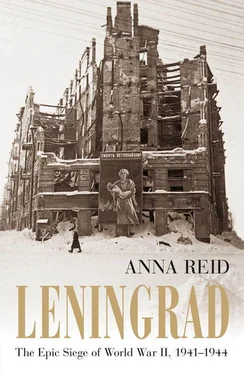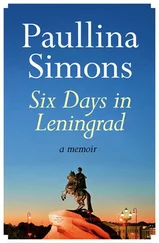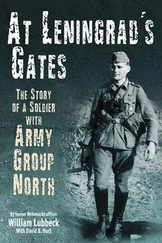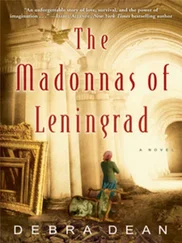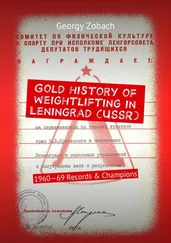), than that they burned villages, stripped peasants of winter clothing and food, and helped round up and shoot Jews. More broadly, Leningrad cedes in the guilt stakes to the Holocaust: ‘To be cynical’, says one German historian, ‘we have so many problematic aspects to our history that you have to choose.’
{3} 3 Professor Ulrich Herbert, interview with the author, Freiburg, April 2008.
Strolling around the lovely medieval city of Freiburg, home to Germany’s military archives, one comes across small brass plaques, engraved with names and dates, set into the pavement. They mark the houses from which local Jewish families were deported to the concentration camps. Leningrad’s women and children, murdered by the same regime with equal deliberation, suffered out of sight and to this day largely out of mind.
The other reason the siege has been little written about, of course, is that the Soviets made it impossible to do so truthfully. During the war, censorship was all-pervading. Russians outside the siege ring, let alone Westerners, had only the vaguest idea of conditions inside the city. Soviet news broadcasts admitted ‘hardship’ and ‘shortage’ but never starvation, and Muscovites were amazed and horrified at the accounts privately given them by friends who made it out across Lake Ladoga. British and American media parroted the Soviet news bureaux. As the initial battles for Leningrad drew to stalemate the BBC’s reports tailed off, and a year later London’s Times reported the establishment of a land corridor out of the city with massive, unconscious understatement. Leningraders, readers were told, had suffered ‘fearful privations’ during the first siege winter, but with the coming of spring conditions had ‘at once improved’. {4} 4 The Times , 19 January 1943.
Allied officialdom was equally in the dark. A member of Britain’s wartime Military Mission to Moscow, a young naval lieutenant at the time, recounts how his only source of information was an actress friend, who got food to her besieged parents by begging a seat on a general’s aeroplane. {5} 5 Commander Geoffrey Palmer; interview with the author, Sherborne, July 2007. Commander Palmer, who sadly passed away before this book was completed, was probably the last Englishman to have met Stalin. He described him as resembling ‘a benevolent grocer; someone who would make a good godfather to one’s children. He looked you straight in the eye, but then you realised that he was looking right through you and out the other side. It was rather uncanny.’
After the war, the Soviet government admitted mass starvation, citing a spuriously precise death toll of 632,253 at the Nuremberg war crime trials. Honest public description of its horrors, however, remained off-limits, as did all debate over why the German armies had been allowed to get so far, and why food supplies had not been laid in, nor more civilians evacuated, before the siege ring closed. The boundaries narrowed even further with the onset of the Cold War and with Stalin’s launch, in 1949, of two new purges. The first, carried out in secret, swept up Leningrad’s war leadership and Party organisation; the second, against ‘cosmopolitanism’—codeword for Jewishness or any sort of perceived Western leaning—hundreds of its academics and professionals. The same year one of Stalin’s cronies, Georgi Malenkov, visited the popular Museum of the Defence of Leningrad, which housed home-made lamps and a mock-up of a wartime ration station (complete with two thin slices of adulterated bread) as well as quantities of trophy ordnance. Striding furiously through the halls, he is said to have brandished a guidebook and shouted: ‘This pretends that Leningrad suffered a special “blockade” fate! It minimizes the role of the great Stalin!’, before ordering the museum’s closure. Its director was accused of ‘amassing ammunition in preparation for terrorist acts’ and sentenced to twenty-five years in the Gulag. {6} 6 The diarist Vera Inber describes visiting the museum on D-Day: see her Leningrad Diary , p. 204. For an interview with the curator at the reopened museum see Cynthia Simmons and Nina Perlina, eds, Writing the Siege of Leningrad: Women’s Diaries, Memoirs and Documentary Prose , p. 170. See also Lisa Kirschenbaum, The Legacy of the Siege of Leningrad, 1941–1995: Myth, Memories, and Monuments , p. 144. The book is a fascinating analysis of siege memorialisation up to the present—the ‘story of the story of the siege’, as Kirschenbaum calls it.
With Stalin’s death in 1953 and Nikita Khrushchev’s rise to power, it finally became possible to focus on aspects of the war other than the Great Leader’s military genius. As well as Khrushchev’s ‘Secret Speech’ denouncing Stalin’s Party purges, and the publication of Solzhenitsyn’s One Day in the Life of Ivan Denisovich , the ‘Thaw’ saw the opening, in 1960, of the first memorial complex to Leningrad’s civilian war dead. The site chosen was the Piskarevskoye cemetery in the city’s north-eastern suburbs, site of the largest wartime mass graves. Khrushchev’s successor Leonid Brezhnev went further, making the siege one of the centrepieces of a new cult of the Great Patriotic War, designed to distract from lagging living standards and political stagnation. Leningraders, in this version, turned from victims of wartime disaster to actors in a heroic national epic. They starved to death, true, but did so quietly and tidily, willing sacrifices in the defence of the cradle of the Revolution. Nobody grumbled, shirked work, fiddled the rationing system, took bribes or got dysentery. And certainly nobody, except for a few fascist spies, hoped the Germans might win.
Communism’s collapse twenty years ago made it possible, in the words of one Russian historian, to start ‘wiping off the syrup’. Government archives opened, giving access to internal Party memos, security service reports on crime, public opinion and the operations of various government agencies, the case files of political arrestees, political officers’ despatches from the front, and transcripts of telephone calls between the Leningrad leadership and the Kremlin. Literary journals began publishing unexpurgated siege memoirs and diaries, and newspapers outspoken interviews with still-angry Red Army veterans and siege survivors. Not least, a great many photographs were published for the first time—not of smiling Komsomolkas with spades over their shoulders, but of stick-legged, pot-bellied children, or messy piles of half-naked corpses.
Though gaps remain—some material is still classified; some was destroyed during the post-war purges—the new material leaves Brezhnev’s mawkish fairytale in tatters. Yes, Leningraders displayed extraordinary endurance, selflessness and courage. But they also stole, murdered, abandoned relatives and resorted to eating human meat—as do all societies when the food runs out. Yes, the regime successfully defended the city, devising ingenious food supplements and establishing supply and evacuation routes across Lake Ladoga. But it also delayed, bungled, squandered its soldiers’ lives by sending them into battle untrained and unarmed, fed its own senior apparatchiks while all around starved, and made thousands of pointless executions and arrests. The camps of the Soviet Gulag, the historian Anne Applebaum remarks, were apart from, but also microcosms of, life in the wider Soviet Union. They shared ‘the same slovenly working practices, the same criminally stupid bureaucracy, the same corruption, and the same sullen disregard for human life’. {7} 7 Anne Applebaum, Gulag: A History of the Soviet Camps , p. 14.
The same applies to Leningrad during the siege: far from standing apart from the ordinary Soviet experience, it reproduced it in concentrated miniature. This book will not argue that mass starvation was as much the fault of Stalin as of Hitler. What it does, however, conclude is that under a different sort of government the siege’s civilian (and military) death tolls might have been far lower.
Читать дальше
